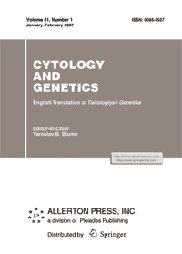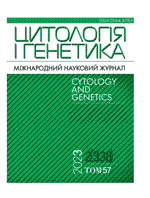Leafhoppers, a broad group of Hemiptera insects, are economic pests that wreak havoc on agriculture and forestry. The genus Ossuaria was established by Dworakowska in 1979, Zhang and Yang discovered Ossuaria sichuanensis (Zhang & Yang, 2011) from China in 2011, but there is no molecular biological evidence to record the genus. To report complete mitochondrial genome of O. sichuanensis, DNA was extracted from the muscle tissue of adult insect and sequenced. The original data were assembled and annotated, a complete mitochondrial genome was mapped, and phylogenetic analysis was performed using maximum likelihood and Bayesian inference. The circular mitogenome of O. sichuanensis is 15,558 bp in length and including 37 typical genes (13 PCGs, 22 tRNA genes, and 2 rRNA genes) and a putative control region. The overall base composition is 42.89 % A, 36.92 % T, 11.02 % C, and 9.17 % G, and the A + T content is 79.81 %. Phylogenetic analyses confirmed the O. sichuanensis is the sisters of other members of the tribe Erythroneurini. The mitochondrial genome structure agrees with earlier research. The genus Ossuaria has been characterized at the molecular level for the first time, and additional research is required to determine how the tribe Zyginellini and the tribe Typhlocybini are related.
Keywords: Leafhopper; O. sichuanensis; complete mitochondrial genome; phylogenetic analysis; China

Full text and supplemented materials
References
Alexander, D., Frank, J., Marwa, A.A., Bernhart, S.H., Franziska, R., Stadler, P.F., Middendorf, M., and Bernt, M., Improved annotation of protein-coding genes boundaries in metazoan mitochondrial genomes, Nucleic Acids Res., 2019, vol. 47, no. 20, pp. 10543–10552. https://doi.org/10.1093/nar/gkz833
Balme, G.R., Phylogeny and systematics of the leafhopper subfamily Typhlocybinae (Insecta: Hemiptera: Typhlocybinae), Ph.D. Thesis, Raleigh: North Carolina State Univ., 2007, pp. 1–149.
Chen, X.X., Yuan, Z.W., Li, C., and Song, Y.H., Complete mitochondrial genome sequence of Empoascanara dwalata (Hemiptera: Cicadellidae: Typhlocybinae), Mitochondrial DNA, Part B, 2020, vol. 5, no. 3, pp. 2260–2261. https://doi.org/10.1080/23802359.2020.1772141
Choudhary, J.S., Naaz, N., Das, B., Bhatt, B.P., and Prabhakar, C.S., Complete mitochondrial genome of ldioscopus nitidulus (Hemiptera: Cicadellidae), Mitochondrial DNA, Part B, 2018, vol. 3, no. 1, pp. 191–192. https://doi.org/10.1080/23802359.2018.1437798
Dietrich, C.H., South American leafhoppers of the tribe Typhlocybini (Hemiptera: Cicadellidae: Typhlocybinae), Zoologia, 2013, vol. 30, pp. 519–568. https://doi.org/10.1590/S1984-46702013000500008
Dietrich, C.H., Allen, J.M., Lemmon, A.R., Lemmon, E.M., Takiya, D.M., Evangelista, O., Walden, K.K.O., Grady, P.G.S., and Johnson, K.P., Anchored hybrid enrichmentbased phylogenomics of leafhoppers and treehoppers (Hemiptera: Cicadomorpha: Membracoidea), Insect Syst. Diversity, 2017, vol. 1, no. 1, pp. 57–72. https://doi.org/10.1093/isd/ixx003
Distant, W.L., Rhynchota—Homoptera, in The Fauna of British India including Ceylon and Burma, London: Secretary of State for India in Council, 1908, vol. 4, p. 501.
Domínguez, E., Murillo, V. and Orwat, J., Leafhopper food plants in a Neotropical forest in Panama (Hemiptera: Cicadellidae), An. Acad. Bras. Cienc., 2021, vol. 93, no. 2, p. e20190171. https://doi.org/10.1590/0001-3765202120190171
Dworakowska, I., On some Typhlocybinae from Vietnam (Homoptera: Cicadellidae), Folia Entomol. Hung., 1977, vol. 30, pp. 9–47.
Dworakowska, I., On some Erythroneurini from Vietnam (Typhlocybinae, Cicadellidae), Annot. Zool. Bot., 1979, vol. 131, pp. 1–50.
Feng, M.G., Pu, X.Y., Ying, S.H., and Wang, Y.G., Field trials of an oil-based emulsifiable formulation of Beauveria bassiana conidia and low application rates of imidacloprid for control of false-eye leafhopper Empoasca vitis on tea in southern China, Crop Prot., 2004, vol. 23, no. 6, pp. 489–496. https://doi.org/10.1016/j.cropro.2003.10.004
Jeena, N.S., Sebastian, W., Rahuman, S., and Sajeela, K.A., A vignette of mitogenome and evolutionary status of the giant form of Sthenoteuthis oualaniensis (Lesson, 1830) endemic to the northwestern Arabian Sea, Mar. Biol., 2023, vol. 170, no. 9, p. 107. https://doi.org/10.1007/s00227-023-04254-9
Jin, J.J., Yu, W.B., Yang, J.B., Song, Y., Pamphilis, C.W., Yi, T.S., and Li, D.Z., GetOrganelle: a fast and versatile toolkit for accurate de novo assembly of organelle genomes, Genome Biol., 2020, vol. 21, no. 1, pp. 1–31. https://doi.org/10.1186/s13059-020-02154-5
Nishino, M., Kohno, K., Murakam, T., and Onaka, K., Dwarfing of soybean caused by citrus leafhopper, Apheliona ferruginea (Hemiptera: Cicadellidae: Typhlocybinae), Jpn. Soc. Appl. Entomol. Zool., 2020, vol. 64, no. 1, pp. 19–25. https://doi.org/10.1303/jjaez.2020.19
Pu, T.Y., Zhang, N., Zhang, Y., and Song, Y.H., Complete mitochondrial genome of Kusala populi (Song, Li & Xiong, 2011) (Hemiptera, Cicadellidae, Typhlocybinae) from Karst area, Southwest China, Mitochondrial DNA, Part B, 2023, vol. 8, no. 5, pp. 557–560. https://doi.org/10.1080/23802359.2023.2209385
Wangkeeree, J., Tewaruxsa, P., and Hanboonsong, Y., New bacterium symbiont in the bacteriome of the leafhopper Yamatotettix flavovittatus Matsumura, J. Asia-Pac. Entomol., 2019, vol. 22, no. 3, pp. 889–896. https://doi.org/10.1016/j.aspen.2019.06.015
Wen, H., Zhou, X., Dietrich, C.H., and Huang, M., Morphometric analysis of forewing venation does not consistently differentiate the leafhopper tribes Typhlocybini and Zyginellini, Front. Ecol. Evol., 2022, vol. 10, p. 1003817. https://doi.org/10.3389/fevo.2022.1003817
Xiang, C.Y., Gao, F.L., Jakovlić, I., Lei, H.P., Hu, Y., Zhang, H., Zou, H., Wang, G.T., and Zhang, D., Using PhyloSuite for molecular phylogeny and tree-based analyses, iMeta, 2023, vol. 2, p. e87. https://doi.org/10.1002/imt2.87
Yan, B., Dietrich, C.H., Yu, X.F., Jiao, M., Dai, R.H., and Yang, M.F., Mitogenomic phylogeny of Typhlocybinae (Hemiptera: Cicadellidae) reveals homoplasy in tribal diagnostic morphological traits, Ecol. Evol., 2022, vol. 12, no. 6, p. e8982. https://doi.org/10.1002/ece3.8982
Yorozuya, H., Sudo, M., and Sato, Y., Field evaluation of resistance to tea green leafhopper, Empoasca onukii, in tea plant, Entomol. Exp. Appl., 2021, vol. 169, no. 11, pp. 1049–1056. https://doi.org/10.1111/eea.13096
Young, D.A.J., A reclassification of western Hemisphere Typhlocybinae (Homoptera: Cicadellidae), Univ. Kans. Sci. Bull., 1952, vol. 35, pp. 3–217.
Yuan, X.W., Xiong, K.N., Li, C., and Song, Y.H., The complete mitochondrial genome of Limassolla lingchuanensis (Hemiptera: Cicadellidae: Typhlocybinae), Mitochondrial DNA, Part B. 5(1):229–230. https://doi.org/10.1080/23802359.2019.1698354
Zhang, Y. and Yang, M., First records of the leafhopper genus Ossuaria Dworakowska in China (Hemiptera: Cicadellidae: Typhlocybinae: Erythroneurini) with descriptions of two new species, Zootaxa, 2011, vol. 2913, pp. 63–68.
Zheng, S.Y., Poczai, P., Hyvonen, J., Tang, J., and Amiryousefi, A., Chloroplot: An online program for the versatile plotting of organelle genomes, Front. Genet., 2020, vol. 11, p. 576124. https://doi.org/10.3389/fgene.2020.576124
Zhou, X., Dietrich, C.H., and Huang, M., Characterization of the complete mitochondrial genomes of two species with preliminary investigation on phylogenetic status of Zyginellini (Hemiptera: Cicadellidae: Typhlocybinae), Insects, 2020, vol. 11, no. 10, p. 684. https://doi.org/10.3390/insects11100684
